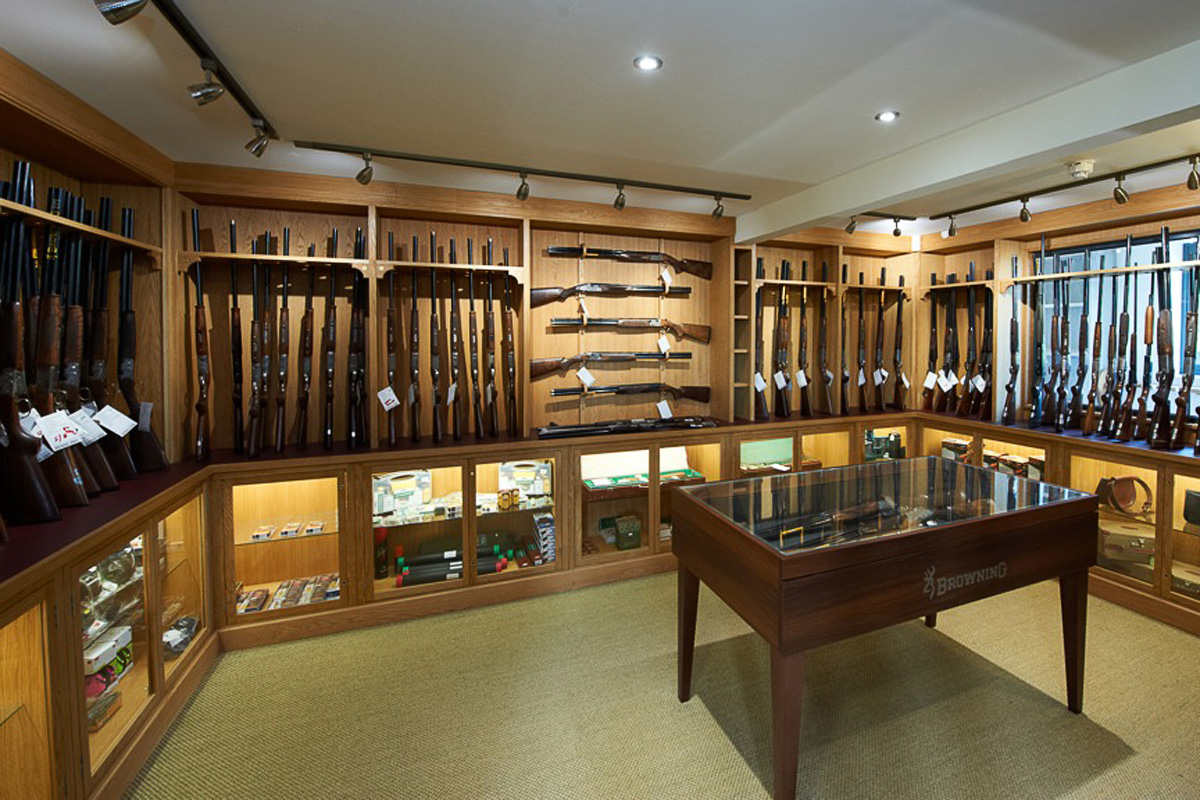Gun Shop Transportation Insurance: Moving Firearms & Ammunition Safely
Gun shops face unique challenges when transporting firearms and ammunition. From strict regulatory requirements to heightened security risks, moving these valuable and sensitive items requires specialized insurance protection that goes far beyond standard commercial vehicle coverage.
Understanding Gun Shop Transportation Risks
Transporting firearms and ammunition involves multiple layers of risk that standard business insurance simply cannot address adequately:
Regulatory Compliance Risks
- Licensing violations: Failure to comply with transportation regulations can result in license suspension or revocation
- Documentation errors: Incorrect paperwork during transit can lead to serious legal consequences
- Route restrictions: Violating approved transportation routes or timing requirements
- Storage compliance: Improper temporary storage during multi-stop deliveries
Security and Theft Concerns
- High-value cargo: Firearms represent attractive targets for criminal activity
- Vehicle security: Specialized security measures required during transport
- Driver safety: Enhanced personal security risks for transport personnel
- Route planning: Strategic routing to minimize exposure to high-risk areas
Essential Coverage Components
Specialized Cargo Insurance
Standard cargo coverage is insufficient for firearms transportation. Specialized policies provide:
- Full replacement value coverage for firearms and ammunition
- Coverage for rare, antique, or custom firearms at agreed values
- Protection against theft, damage, and mysterious disappearance
- Coverage for temporary storage during approved stops
Regulatory Compliance Protection
- Legal defense costs for regulatory violations
- Fines and penalties coverage
- License reinstatement assistance
- Compliance consulting services
Enhanced Security Coverage
- Security escort reimbursement
- Specialized vehicle modification costs
- GPS tracking system coverage
- Emergency response coordination
Transportation Security Requirements
Vehicle Specifications
Proper transportation requires vehicles meeting specific security standards:
- Secure storage compartments: Locked, reinforced areas for firearms storage
- Alarm systems: Motion detection and breach alerts
- GPS tracking: Real-time location monitoring
- Communication systems: Constant contact with dispatch
Personnel Requirements
- Background-checked and licensed drivers
- Specialized training in firearms transportation
- Emergency response protocols
- Proper documentation procedures
Common Transportation Scenarios
Dealer-to-Dealer Transfers
Moving inventory between licensed dealers requires:
- Proper ATF documentation
- Secure packaging and labeling
- Direct routing without unauthorized stops
- Immediate notification of any delays or incidents
Trade Show Transportation
- Extended coverage periods for multi-day events
- Display security during setup and breakdown
- Temporary storage at venues
- Return transportation protection
Customer Delivery Services
- Direct-to-customer delivery protocols
- Identity verification procedures
- Secure handoff documentation
- Failed delivery return procedures
Risk Management Best Practices
Pre-Transportation Planning
- Route optimization: Plan safest, most direct routes
- Timing coordination: Schedule deliveries during optimal hours
- Weather monitoring: Avoid transportation during severe conditions
- Communication protocols: Establish check-in procedures
Documentation Management
- Maintain complete chain of custody records
- Digital backup of all transportation documents
- Real-time documentation updates
- Secure document storage systems
Emergency Procedures
- Immediate incident reporting protocols
- Law enforcement coordination procedures
- Customer notification systems
- Recovery and investigation support
Choosing the Right Transportation Insurance
Coverage Evaluation Criteria
When selecting gun shop transportation insurance, consider:
- Coverage limits: Ensure adequate protection for your highest-value shipments
- Deductible options: Balance premium costs with acceptable risk retention
- Geographic coverage: Verify protection across all transportation routes
- Carrier experience: Choose insurers with firearms industry expertise
Policy Integration
- Coordinate with existing business insurance policies
- Ensure no coverage gaps between stationary and transit protection
- Verify compatibility with commercial vehicle insurance
- Consider umbrella coverage for catastrophic losses
Cost Factors and Premium Considerations
Factors Affecting Premium Costs
- Transportation frequency: Regular vs. occasional shipments
- Cargo values: Average and maximum shipment values
- Geographic coverage: Local, regional, or national transportation
- Security measures: Vehicle modifications and personnel training
- Claims history: Previous transportation incidents or losses
Cost Management Strategies
- Implement comprehensive security protocols
- Maintain detailed transportation records
- Invest in driver training and certification
- Consider higher deductibles for premium savings
- Bundle with other business insurance policies
Regulatory Compliance Considerations
Federal Requirements
- ATF licensing and registration compliance
- Interstate transportation regulations
- Proper documentation and record-keeping
- Reporting requirements for incidents
State and Local Regulations
- Varying state transportation laws
- Local routing restrictions
- Municipal licensing requirements
- Cross-jurisdictional compliance issues


 0330 127 2333
0330 127 2333
